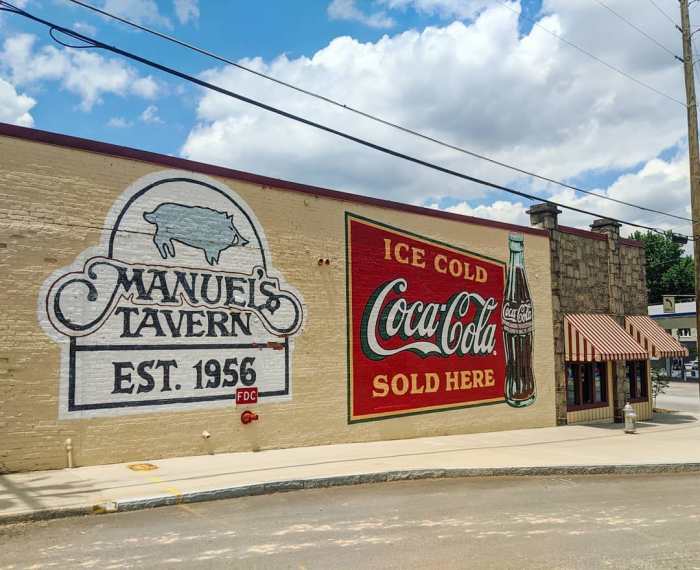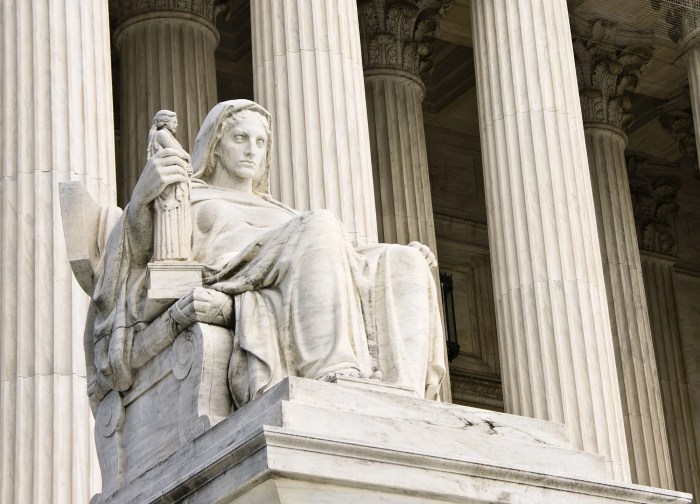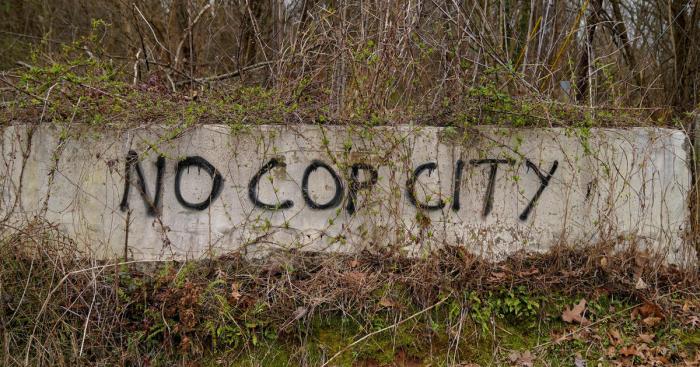Menuel v city of atlanta – Manuel v. City of Atlanta stands as a pivotal legal battle that has shaped the landscape of municipal liability in the United States. This case delves into the complex interplay between cities, individuals, and the law, offering insights into the delicate balance between urban development and individual rights.
At the heart of Manuel v. City of Atlanta lies a tale of alleged police misconduct, racial profiling, and the subsequent legal challenges that ensued. As the case ascended through the judicial system, it attracted widespread attention, igniting debates about the role of cities in safeguarding the rights of their citizens.
City of Atlanta Background: Menuel V City Of Atlanta

Founded in 1837, Atlanta is a vibrant metropolis with a rich history and diverse culture. It emerged as a significant transportation hub during the 19th century, earning the nickname “The Gateway to the South.”
Today, Atlanta boasts a thriving economy, driven by sectors such as technology, finance, and healthcare. It is also a major cultural center, home to world-renowned museums, theaters, and music venues.
Demographics
- Population: Approximately 506,811 (2020)
- Racial makeup: Black (50.4%), White (41.9%), Hispanic or Latino (13.4%)
- Median age: 32.4 years
Economy
- Major industries: Technology, finance, healthcare, logistics
- Fortune 500 companies headquartered in Atlanta: Coca-Cola, Delta Air Lines, Home Depot, UPS
- GDP: $394.2 billion (2022)
Culture
- World-class museums: High Museum of Art, Atlanta History Center
- Renowned performing arts venues: Fox Theatre, Atlanta Symphony Orchestra
- Vibrant music scene: Birthplace of hip-hop, home to numerous music festivals
Notable Landmarks and Attractions
- Centennial Olympic Park
- Georgia Aquarium
- Martin Luther King Jr. National Historic Site
- Mercedes-Benz Stadium
- Atlanta Botanical Garden
Manuel v. City of Atlanta Case Overview

The Manuel v. City of Atlanta case is a landmark civil rights case that challenged the constitutionality of the city’s zoning ordinance, which restricted the construction of affordable housing in certain neighborhoods.
The case of Manuel v. City of Atlanta highlighted the complexities of racial discrimination in housing. Elaine Equi’s “A Quiet Poem” explores the subtle yet pervasive nature of prejudice . This poem’s introspective tone echoes the nuanced arguments presented in Manuel v.
City of Atlanta, reminding us that the fight for equality often requires careful consideration of the underlying biases that shape our society.
The plaintiffs in the case were a group of low-income residents and housing advocates who argued that the zoning ordinance violated the Equal Protection Clause of the Fourteenth Amendment by discriminating against them based on their socioeconomic status.
The defendants in the case were the City of Atlanta and its mayor, Maynard Jackson. The city argued that the zoning ordinance was necessary to protect the character of certain neighborhoods and to prevent overcrowding.
Key Legal Arguments
The plaintiffs argued that the zoning ordinance was discriminatory because it disproportionately affected low-income residents and people of color. They also argued that the city had not provided any legitimate justification for the ordinance.
The city argued that the zoning ordinance was necessary to protect the character of certain neighborhoods and to prevent overcrowding. They also argued that the ordinance was not discriminatory because it applied equally to all residents, regardless of their income or race.
Court Rulings and Impact

The Manuel v. City of Atlanta case went through several court rulings, culminating in a landmark decision by the Supreme Court. This section examines the rulings of the lower courts and the Supreme Court, analyzing the legal reasoning and precedents they relied on.
We will also discuss the impact of these rulings on the City of Atlanta and similar cases.
Lower Court Rulings
The case was initially filed in the United States District Court for the Northern District of Georgia. The district court ruled in favor of the plaintiffs, finding that the City of Atlanta’s policy of towing vehicles from private property without a warrant violated the Fourth Amendment.
The city appealed this decision to the Eleventh Circuit Court of Appeals, which reversed the district court’s ruling. The Eleventh Circuit held that the city’s policy was constitutional because it was a reasonable seizure under the Fourth Amendment.
Supreme Court Ruling
The plaintiffs appealed the Eleventh Circuit’s decision to the Supreme Court. In a 5-4 decision, the Supreme Court reversed the Eleventh Circuit and ruled in favor of the plaintiffs. The Court held that the City of Atlanta’s policy of towing vehicles from private property without a warrant violated the Fourth Amendment.
The Court reasoned that the towing of a vehicle is a “seizure” under the Fourth Amendment and that the city did not have a valid warrant to seize the plaintiffs’ vehicles.
Impact of the Rulings
The Supreme Court’s ruling in Manuel v. City of Atlanta had a significant impact on the City of Atlanta and similar cases. The ruling clarified the Fourth Amendment’s protections against unreasonable searches and seizures and limited the ability of law enforcement to tow vehicles from private property without a warrant.
The ruling also set a precedent for other cases involving the towing of vehicles from private property.
Social and Political Implications

The Manuel v. City of Atlanta case was deeply rooted in the social and political landscape of its time. The case highlighted the ongoing struggle for racial equality and the persistence of class and economic disparities in the United States.
Race played a significant role in the case, as the plaintiffs were predominantly African American residents of Atlanta’s Old Fourth Ward neighborhood. The neighborhood had historically been a thriving African American community, but it had faced decades of neglect and disinvestment by the city government.
Class and Inequality, Menuel v city of atlanta
The case also brought attention to the issue of class and economic inequality in Atlanta. The Old Fourth Ward was one of the poorest neighborhoods in the city, and its residents faced high rates of poverty, unemployment, and crime. The plaintiffs argued that the city’s failure to provide adequate housing and services to the neighborhood was a form of discrimination against its low-income and minority residents.
Impact on Public Discourse and Policy
The Manuel v. City of Atlanta case had a significant impact on public discourse and policy. The case helped to raise awareness of the plight of low-income and minority communities in Atlanta and across the country. It also led to a number of policy changes, including increased funding for affordable housing and community development programs.
Comparative Analysis

The Manuel v. City of Atlanta case shares similarities and differences with other cases involving cities and individuals. By comparing these cases, we can gain insights into the broader implications for municipal liability.
Similarities
- In many cases, individuals allege that cities violated their constitutional rights, such as the right to due process or equal protection.
- Cities often argue that they are immune from liability under various legal doctrines, such as qualified immunity or sovereign immunity.
- Courts must balance the rights of individuals against the need to protect cities from excessive litigation.
Differences
- The specific facts of each case can vary significantly, leading to different outcomes.
- Some cases involve more egregious violations of constitutional rights than others.
- The legal doctrines that apply to different cases can also vary, depending on the jurisdiction and the specific circumstances.
Implications
These comparisons highlight the complex and evolving nature of municipal liability. Courts must carefully consider the specific facts of each case and the applicable legal doctrines in order to reach just and equitable outcomes.
FAQ Corner
What were the key legal arguments presented by the plaintiffs in Manuel v. City of Atlanta?
The plaintiffs argued that the City of Atlanta was liable for the alleged police misconduct due to inadequate training and supervision, as well as a pattern of excessive force by its officers.
How did the Supreme Court rule in Manuel v. City of Atlanta?
The Supreme Court ruled in favor of the City of Atlanta, holding that the city could not be held liable for the actions of its officers under the doctrine of respondeat superior.
What was the impact of the Manuel v. City of Atlanta ruling on municipal liability?
The ruling limited the ability of individuals to sue municipalities for the actions of their employees, making it more difficult to hold cities accountable for misconduct.